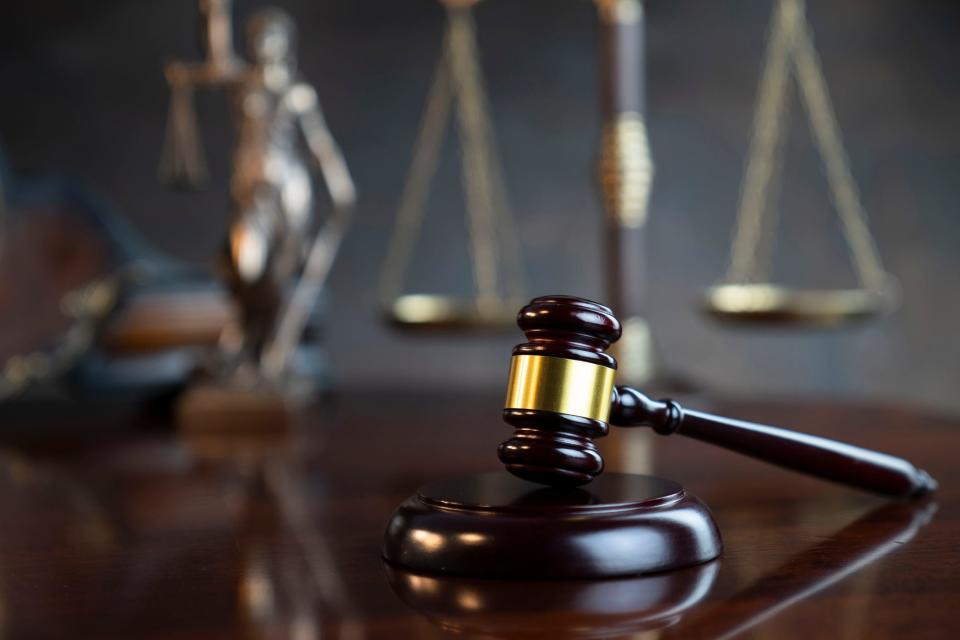Legal terms to know in criminal cases
Have questions about how crimes are investigated and prosecuted? We've got your answers plus terms you need to know:
Who investigates potential crimes?
Potential crimes are investigated by police, who then turn over their findings and suggested charges to the prosecutor. In some instances, prosecutors may also conduct investigations.
Who brings charges for potential crimes?
Police agencies submit recommended charges to county attorneys, who then seek either a grand jury indictment or file a direct criminal complaint. Police routinely fill out a form, known generally as a booking sheet, which lays out their rationale for why they have enough evidence to suspect someone of a crime and hold that person in custody.
What is a grand jury?
A grand jury is a group of citizens who deliberate in private to determine whether there is probable cause to believe a defendant committed a crime. A grand jury does not determine guilt or innocence, only if there is enough evidence for an individual to be charged with a crime. In Arizona, courts pick qualified grand jurors from the community at random. They must be 18 years old, have no felony convictions, and have no history of mental illness diagnosis.

What is an indictment?
According to FindLaw, an indictment is "a formal written statement framed by a prosecuting authority and found by a grand jury that charges a person or persons with an offense." Unlike police accusations, indictments are formal criminal allegations in a court of law.
Are there other ways for people to face charges?
Individuals can be charged by an indictment or through a direct criminal complaint filed by a prosecutor.
What is a direct complaint?
According to the Maricopa County Attorney's Office, a direct complaint is "a document prepared by the prosecutor which specifies the felony offense(s) the defendant is alleged to have committed." Direct complaints are reviewed by a judge to determine whether there is enough evidence to summon a defendant for a preliminary hearing or issue an arrest warrant.
What is an arraignment?
An arraignment is the first appearance of a defendant before a judge. In it, individuals hear the charges against them and have the opportunity to plead guilty, not guilty, or no contest. The arraignment follows an arrest or summons. If a judge deems it necessary, bail can be set at an arraignment hearing. Pleading no contest means the defendant will not contest the charges, but they also are not admitting guilt.
What happens after an arraignment?
Defendants who plead not guilty will have a pre-trial hearing set. Individuals who plead guilty or no contest will be scheduled for sentencing. Different conditions or releases can be set for defendants before the sentencing or trial date.
What is a plea bargain?
A plea bargain, or plea deal, is an agreement between the defendant and prosecutor. The agreement allows both sides to avoid a possibly costly and lengthy trial. The deal often involves the defendant agreeing to a lesser charge or charges and, in return for accepting guilt, faces a less severe sentence and often other charges being dropped.
What does it mean to plead guilty?
If defendants plead guilty it means they are admitting to committing the crimes they are charged with. It also means they will be sentenced within the guidelines set forth in state law.
What percentage of cases go to trial?
According to the Pew Research Center, 2% of federal criminal defendants went to trial in 2018 nationally, while 90% pleaded guilty.
Who sentences someone who is found guilty or pleads guilty?
For crimes that are not eligible for the death penalty, the judge sentences the defendant. However, if the prosecution seeks the death penalty after a conviction in Arizona, a jury must unanimously agree on a sentence of death or natural life. In those cases, the jury must recommend a death sentence before a judge can order it.
This article originally appeared on Arizona Republic: Key legal terms for understanding criminal prosecutions

